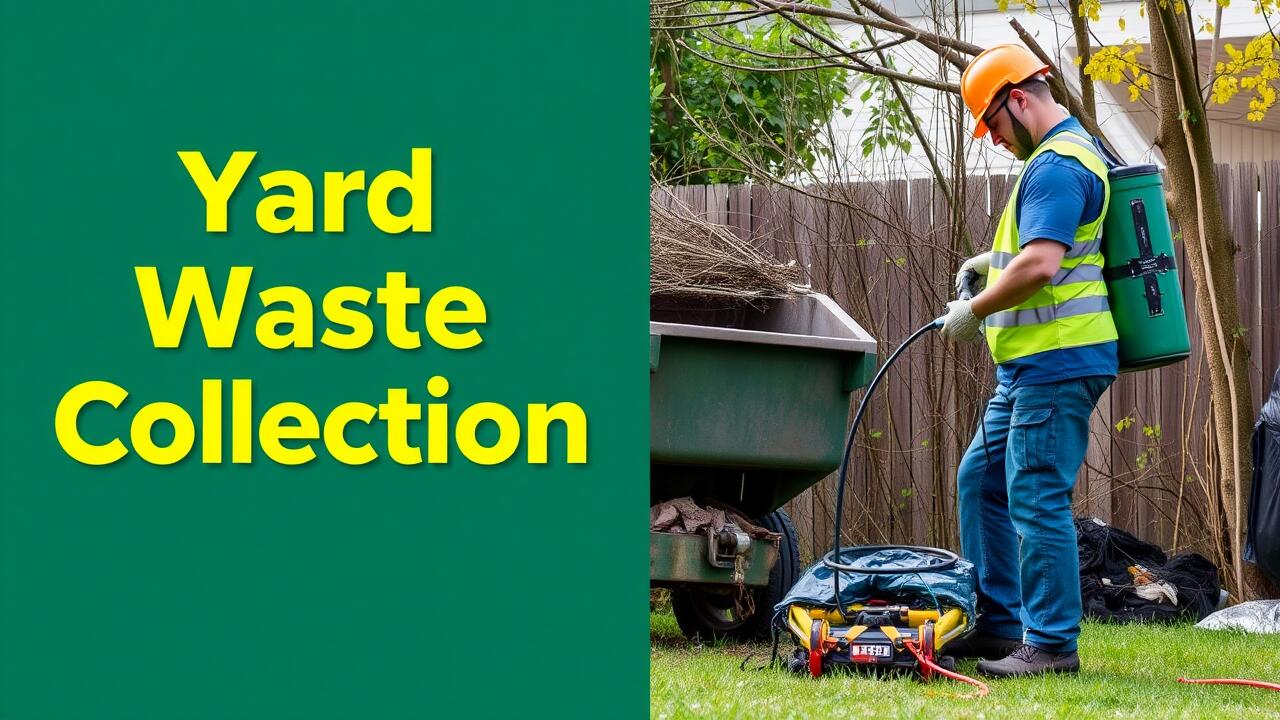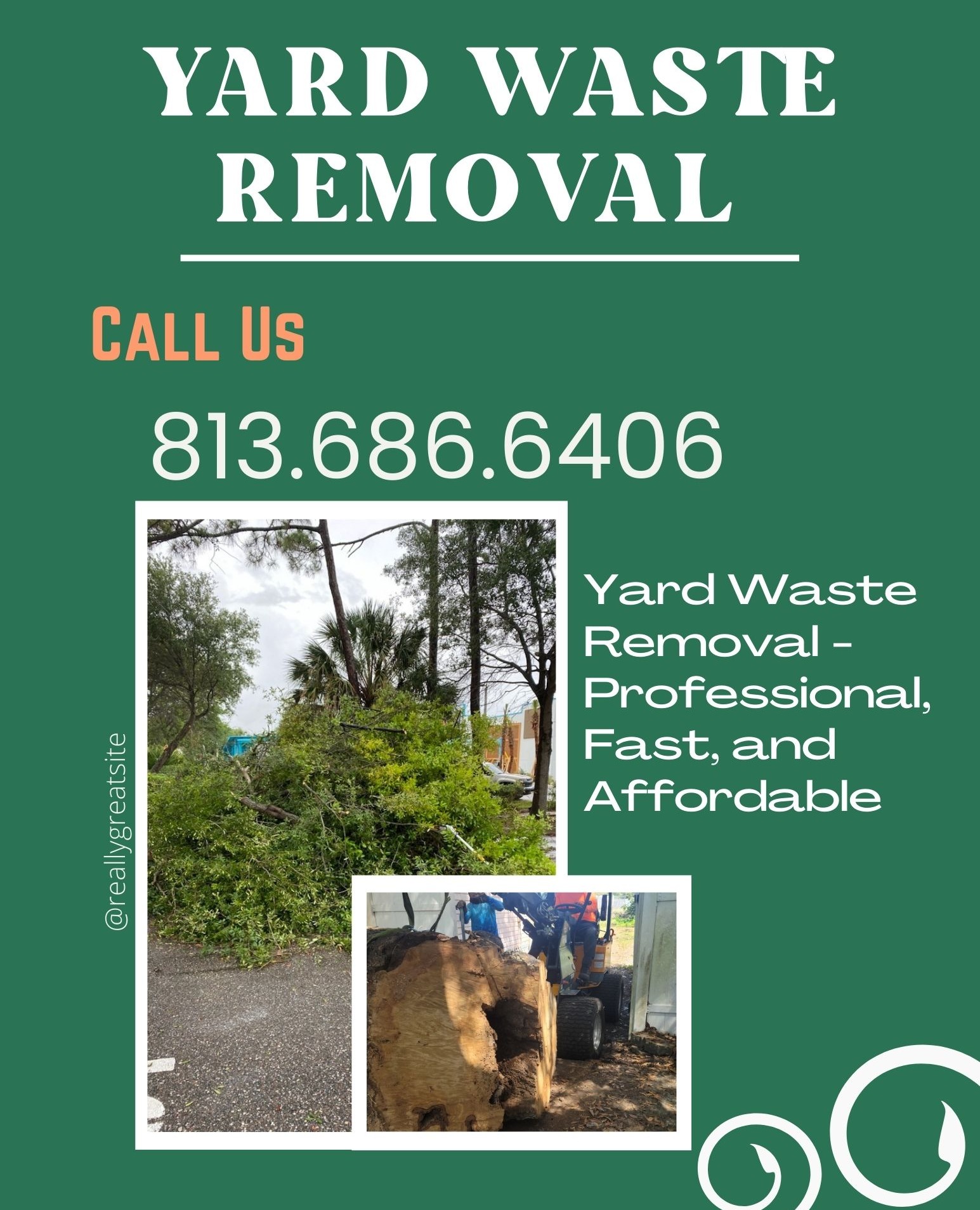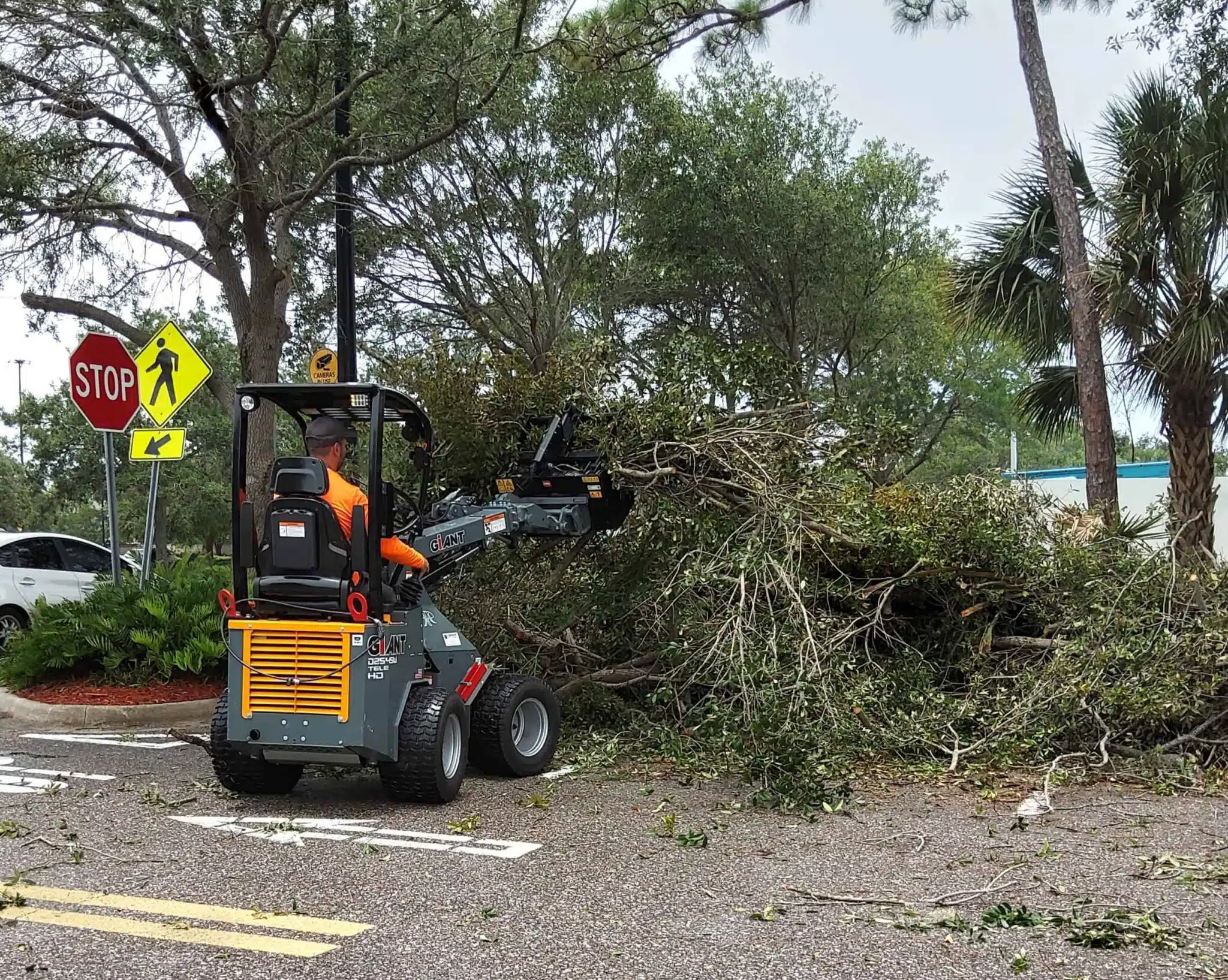
Yard Waste Collection Services
Many communities offer Yard Waste Collection services as part of their waste management programs. These services typically include scheduled pickups for organic materials such as leaves, grass clippings, and branches. Residents can place their yard waste in designated bins or bags for collection on specified days, making it easy to manage seasonal debris and keep the environment clean.
In some areas, Yard Waste Collection services may also involve drop-off locations where residents can take larger items like tree limbs or bulk plant material. These services help reduce landfill waste and promote composting or mulching initiatives. Participating in local yard waste programs can benefit the community by encouraging sustainable practices and returning nutrients to the soil.
Call for a Free Estimate 813-597-7922
How to Find Local Services
Finding local services for yard waste collection in your area can be a straightforward process. Start by checking your municipality’s official website, which often provides information on waste disposal options, including scheduled yard waste collection days. Many cities incorporate yard waste as part of their regular garbage collection service or offer designated days for yard debris. Additionally, local newspapers or community bulletin boards may list any special services or events dedicated to yard waste disposal.
Another effective way to identify yard waste collection services is by reaching out to neighbors or local gardening clubs. Residents typically share helpful insights about their experiences with various waste collection services. Online platforms can also assist in finding services; websites dedicated to waste management reviews often feature ratings and feedback on local yard waste collection companies. By utilizing these resources, residents can ensure proper disposal of their yard waste while supporting local initiatives.
Home Composting Solutions
Home composting solutions offer an effective way to manage yard waste while enriching your garden soil. By composting materials such as grass clippings, leaves, and small branches, you can reduce the amount of waste sent to landfills. This approach also minimizes the need for chemical fertilizers, as the compost created will provide essential nutrients to plants. Many communities combine this effort with Yard Waste Collection services to ensure that any leftover items are properly disposed of.
Setting up a compost bin is straightforward and requires minimal investment. Select a location that receives some sunlight and is easily accessible. A variety of bin designs exist, from simple piles to enclosed containers. It is important to balance green materials, like kitchen scraps and fresh clippings, with brown ones, such as dried leaves and cardboard. Regular turning of the pile aids decomposition, creating a rich compost that can be used throughout the gardening season.
Setting Up a Compost Bin
Setting up a compost bin can turn your yard waste into nutrient-rich compost. Start by selecting a suitable location for the bin. Look for a well-drained, shaded spot in your yard that is easily accessible. This will help maintain the right temperature and moisture levels essential for optimal decomposition. Consider the size of your bin; it should be large enough to accommodate your yard waste but manageable for regular maintenance.
Next, gather materials for your compost. Ideal ingredients include vegetable scraps, grass clippings, fallen leaves, and small branches. Avoid adding meats, dairy products, or oily foods as they can attract pests. Regularly turning the compost will aid in aeration and speed up decomposition. While some choose to utilize yard waste collection services, creating your own compost not only reduces waste but also enriches your garden soil.
Call for a Free Estimate 813-597-7922
Seasonal Yard Waste Management
Seasonal yard waste management is essential for maintaining a neat and healthy landscape. Different seasons bring varying types of debris, making it important to adapt management strategies accordingly. For instance, spring often sees a surge in grass clippings and pruned branches, while fall presents an abundance of leaves. Regular yard maintenance helps prevent buildup and prepares material for Yard Waste Collection services.
As seasons change, homeowners should plan for efficient disposal and recycling of organic waste. Researching local schedules for Yard Waste Collection can ensure timely removal of debris. Additionally, residents can explore services that offer composting options, transforming yard waste into nutrient-rich soil for gardens. Proper management not only keeps properties tidy but also contributes to local sustainability efforts.
Preparing for Fall Cleanup
As autumn leaves change colors and begin to fall, homeowners often find themselves faced with the task of managing the resulting yard waste. Preparing for fall cleanup not only enhances the aesthetic of outdoor spaces but also contributes positively to the environment. Raking leaves, trimming dead branches, and collecting fallen fruits or nuts are typical activities. Gathering this organic material can prevent issues such as mold growth or pest infestations as the weather cools.
Many municipalities offer convenient Yard Waste Collection services during the fall season. Residents can place their collected yard waste in designated bins or bags for easy disposal. Checking local schedules for collection days can help ensure that all debris is removed promptly. This proactive approach allows for a neat and orderly yard while supporting community waste management efforts. Taking advantage of these services makes autumn maintenance simpler and helps keep neighborhoods tidy.
Call for a Free Estimate 813-597-7922
FAQS
What is considered yard waste?
Yard waste generally includes organic materials such as leaves, grass clippings, branches, and small tree trimmings that are generated from garden and landscaping activities.
Can food scraps be classified as yard waste?
No, food scraps are not considered yard waste; they are typically categorized as kitchen waste. However, both types of waste can be composted together in a composting system.
How can I properly dispose of yard waste?
You can dispose of yard waste by utilizing local yard waste collection services, composting it at home, or taking it to designated drop-off sites for organic waste.
Is it better to compost yard waste rather than throwing it away?
Yes, composting yard waste is an environmentally friendly option that reduces landfill waste and creates nutrient-rich compost that can improve soil health in your garden.
What types of yard waste should not be included in composting?
You should avoid composting diseased plants, invasive weeds, and materials that may contain pesticides or chemicals, as they can harm the composting process and soil health.
Call for a Free Estimate 813-597-7922


